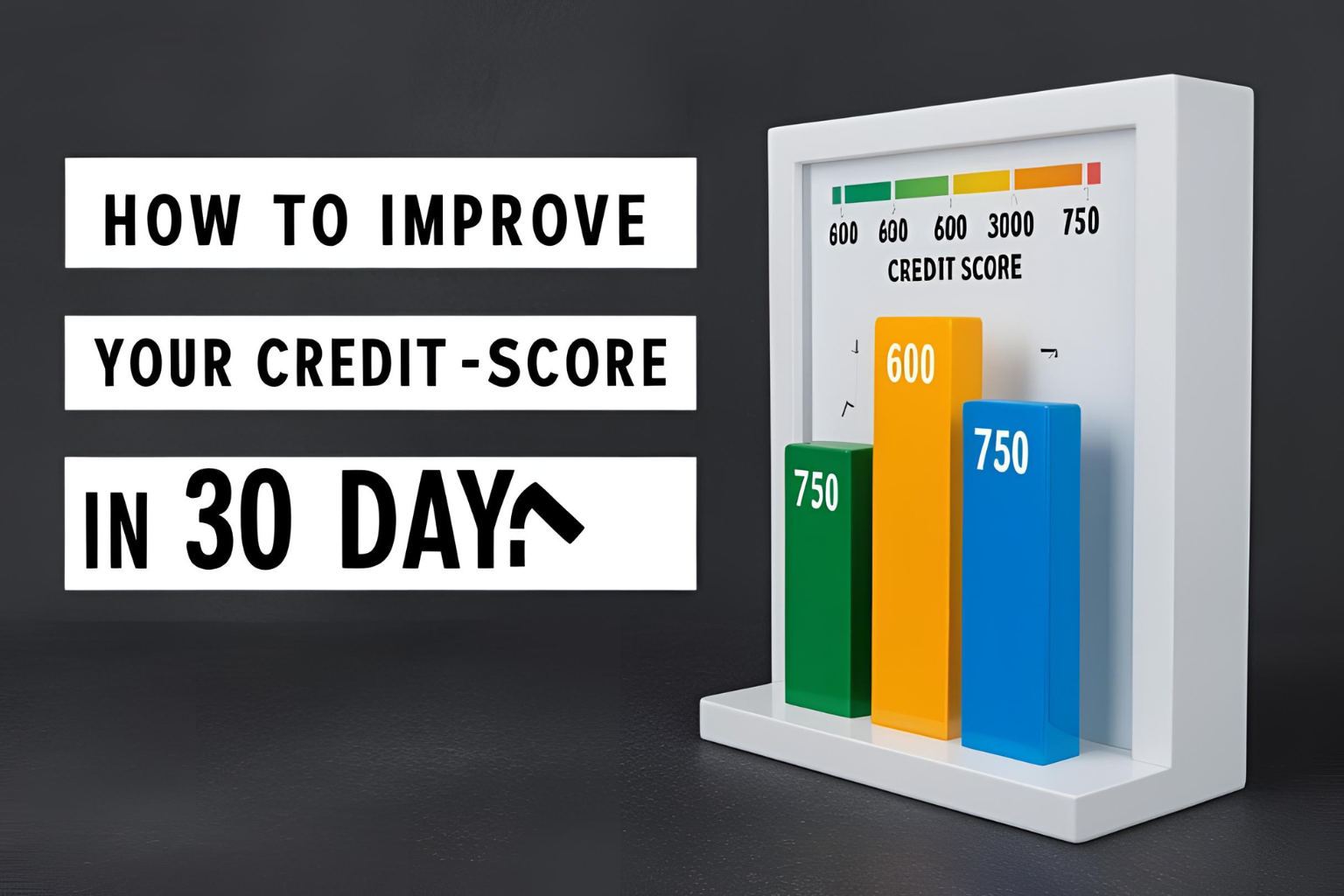How to Improve Your Credit Score in 30 Days
Your credit score plays a major role in your financial life—affecting everything from loan approvals to interest rates and even rental applications. The good news? With the right strategy, you can give your score a noticeable boost in as little as 30 days.
Here are the top actionable steps to improve your credit score quickly and responsibly.
1. Check Your Credit Report for Errors
Start by requesting a free copy of your credit report from:
Look for:
- Incorrect account balances
- Duplicate accounts
- Late payments that you actually made on time
Dispute any inaccuracies with the credit bureaus—Equifax, Experian, and TransUnion.
2. Pay Down Credit Card Balances
Your credit utilization ratio (credit used vs. credit limit) accounts for 30% of your FICO score. Aim to keep it below 30%, ideally under 10%.
Example: If your card limit is $2,000, try to use no more than $600.
Paying off even a small balance can lead to a score increase.
3. Request a Credit Limit Increase
If you have a good payment history, request a limit increase from your current credit card issuer. If approved, your utilization rate drops—boosting your score without spending a penny.
Important: Do not increase your spending after the limit increase.
4. Become an Authorized User
Ask a family member or friend with a strong credit history to add you as an authorized user on their credit card. Their good history can help improve your score—especially if their card has a long history and low utilization.
5. Set Up Automatic Bill Payments
Missed or late payments can severely hurt your credit. Use automatic payments or reminders to ensure you never miss a due date.
Even one 30-day late payment can drop your score by 60 to 100 points.
6. Use Experian Boost
Experian Boost is a free tool that allows you to add on-time utility, phone, and Netflix payments to your Experian credit file—potentially increasing your score instantly.
Visit: Experian Boost
7. Pay Twice a Month
Make two payments per billing cycle instead of one. This helps lower your credit utilization faster, especially if your card reports balances before your monthly due date.
Final Thoughts
While improving your credit score takes time, these smart moves can bring noticeable results in 30 days or less. Stay consistent, avoid new debt, and monitor your progress regularly to keep your credit heading in the right direction.
FAQs
How often do credit scores update?
Credit scores can update as often as your creditors report to the bureaus—typically once a month.
Can I raise my credit score by 50 points in 30 days?
Yes, especially if you reduce high utilization or fix reporting errors.
Does paying off a loan improve my score?
It may slightly help, but keeping a healthy credit mix is more important.
Will closing a credit card hurt my score?
It could. Closing reduces your total credit limit, increasing utilization.
How long do late payments affect my score?
Late payments stay on your credit report for 7 years, but their impact lessens over time.


